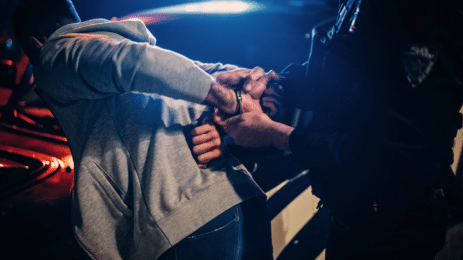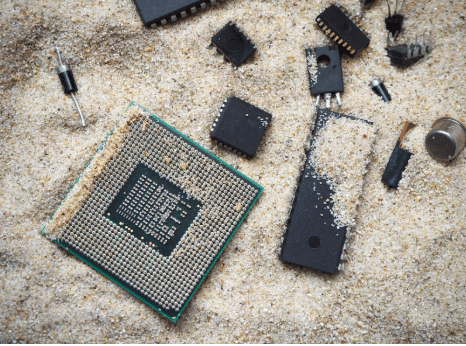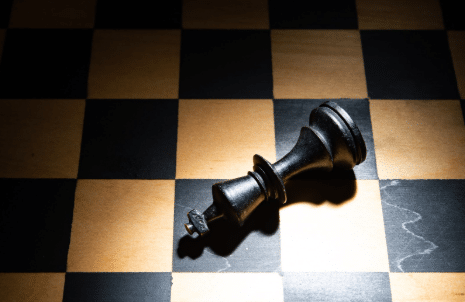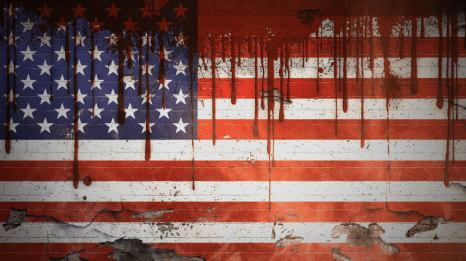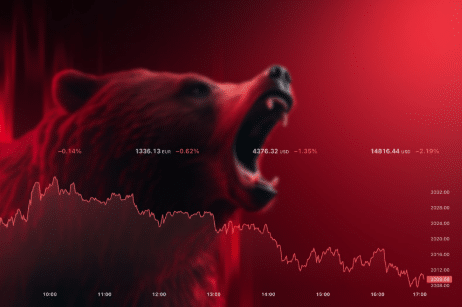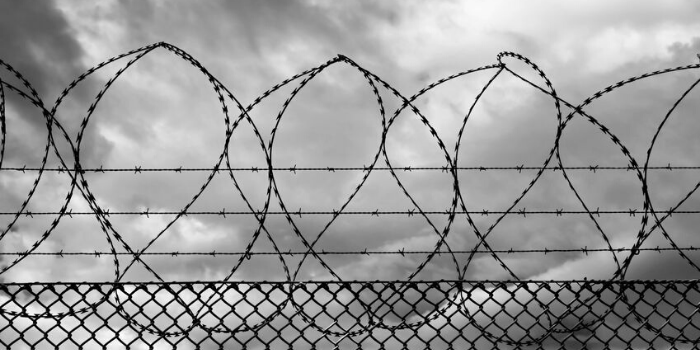
The Thin Line Between Our World and a Dystopian Fiction - World Locked Down
What if last August, 2019, someone were to say that in March 2020 the entire world would be in near-lockdown amidst a global pandemic…
All schools, public buildings, restaurants, bars...closed…
All professional sports, all major concerts, cancelled or postponed…
Global markets in freefall, while countries close their borders…
Life as we knew it would change indefinitely?
If someone said that a little over half a year ago, it would sound like nothing more than a dystopian fiction, conspiracy theory, or just plain insanity.
Well, here we are. But that’s not the point. That I’ll get to later.
There was this piece of dystopian “fiction” written by Jim Rickards titled A Tour of the Future, published in the Daily Reckoning newsletter.
Let’s take a tour of Rickards’ “tour” of a dystopian 2026, a more contemporized rendition of Orwell’s 1984. We’ll examine a few snippets to tease out a few main points that may be worth contemplating.
“As I awoke this morning, Sunday, Oct. 13, 2026, from restless dreams, I found the insect-sized sensor implanted in my arm was already awake. We call it a “bug.” U.S. citizens have been required to have them since 2024 to access government health care.”
This is how it begins. Never mind the technological aspect of the piece. Think about what it means, namely, centralization, a lack of privacy, and, combining the two, the abolishment of individual privacy and freedom.
“Images of world leaders were on the screen. They were issuing proclamations about the fine health of their economies and the advent of world peace.”
The scenario as it’s fully presented is obviously fictional. The reality behind the scenario is not. You see, most people tend to be “followers” with not even a scrap of critical thought. They see their leaders on the screen. They hear the wonderful proclamations.
Take COVID-19. Which politician said "One day it's like a miracle, it will disappear"? Well, it’s quite possible! It’s also possible that, like a miracle, it’ll take you, your friends, parents, grandparents, and others in your community along with its disappearing act. Miracle indeed?
“Today, trust in markets is completely gone. All investors want is their money back. Authorities started printing money after the Panic of 2008, but that solution stopped working by 2022. Probably because so much had been printed under QE7. When the panic hit, money was viewed as worthless. So markets were simply closed.”
Trust in the markets completely gone? Certainly, this is fiction. Isn’t it? I mean, who doesn’t trust the markets, the banks, or the authorities who run it? That, of course, is a rhetorical question.
When we wrote about the coming QE, sometime last year, we were proposing a worst-case yet highly-likely scenario. We don’t prognosticate, we just strategically position ourselves based on potential risks. It’s like what you do every single day wearing a seatbelt. We couldn’t have anticipated COVID-19, but here it is.
And here goes another round of global QE. So, in Rickards’ dystopian piece, talking about a QE7, how “fictional” is such a scenario in terms of reasonable likelihood?
“In 2024, the Group of 20 major powers, the G-20, abolished all currencies except for the dollar, the euro and the ruasia (not a typo)...There is also new world money called special drawing rights, or SDRs for short...As a result of the fixed exchange rates, there’s no currency trading.”
We just want to point out that over the years, we’ve been writing about SDRs, and the potential effect of de-dollarization.
Some naysayers have called it “alarmist.”...along with our forecasts of a major economic downturn, the rise in gold prices, and the likelihood of another series of rate cuts.
Apparently, our call on the bottoming of gold might have been received with doubt as well (despite that fact that the bottom range of prices were really low). Remember, markets are cyclical. Were we wrong?
“All of the gold in the world was confiscated in 2024...All private gold was forcibly confiscated and added to the Swiss vault...All gold mining had been nationalized and suspended...The purpose of the Swiss vault was not to have gold backing for currencies, but rather to remove gold from the financial system entirely so it could never be used as money again...the G-20 and the World Central Bank control the only forms of money.”
Is there any advantage to confiscating gold and preventing it from being used in the financial system?
Is there any advantage to removing a currency’s gold or commodity backing (that’s a rhetorical question, again)?
Is it really that far fetched to imagine a government controlling money supply, monetary value, and initiating transactional surveillance?
How might a government even be able to track private gold--that is, if it weren’t for CUSIP?
“Some lucky ones had purchased gold before 2020, when it was under $2,000 an ounce, and sold it when it reached $40,000 per ounce early in 2025.”
This may be difficult to imagine. $40,000 an ounce? It would take a major event for such a thing to take place. COVID-19 turning into a global pandemic was also impossible for most people to imagine.
Of course, we’re not drawing a direct correlation between the two.That’s not the point. Epidemiologists may not have been able to “predict” the coronavirus spread. But the smarter epidemiologists anticipated some kind of potential outbreak (that’s partly their job...like risk managers), urging governments to prepare just in case something like this would happen.
Of course, most governments, like most people, see the world based on a static, stable, status quo type of model. The world is anything but.
Now you see the consequences of such static thinking.
Referring back to the story, we don’t know if gold will hit $20,000, $30,000, $40,000 or more. The point is to hedge currency risk, to do it reasonably, and to do it now.
“Those who never owned gold in the first place saw their savings, retirement incomes, pensions and insurance policies turn to dust once the hyperinflation began...But investors not only needed to have the foresight to buy it...For that reason, many lost everything.”
This doesn’t say anything different from what we usually tell our readers. Let’s skip ahead toward the latter part of the story.
“The government could also monitor all of your transactions and digitally freeze your account if you disagreed with their tax or monetary policy.”
This totalitarian picture goes far beyond the coerciveness of our “democratic” government. It’s the endgame for all things political and monetary. And gold is what stands in-between and in resistance to this dystopian picture as compared with our current reality.
So what’s the main point here? Is it that truth can be stranger than fiction, or that fiction can sometimes express more truth than any form of content that claims to represent reality?
You could look at it that way if you wish. But that’s too easy and too obvious, don’t you think?
The bottom line is that the one commonality between a dystopian fantasy and our current reality is that in both cases, people consistently underestimate the risks of a seemingly improbable (yet realistically probable) scenario.
How many people saw COVID-19’s rate of spread before it began infecting people abroad and thought to themselves, “this can turn into a pandemic”?
Some of us actually suspected such a scenario. COVID-19’s spread rate was so fast, so silent, and so potentially disruptive that it was hard to imagine any “static” model of everyday life remaining stable.
If you base your reality on a bell curve (seeking averages), you’ll miss the long tails that may have the capacity to completely destroy the average. That’s where the term “Black Swan” comes in.
Is Rickards’ dystopian fiction a “possible world”? We don’t know for sure. But are the conditions set in place for such a scenario to materialize? Arguably, yes. Is it in the nature of institutions to seek a more centralized role in governing its people? We all know the answer to this. And do people fail to see the dangers that lurk beyond the screen of status quo thinking? Often. Do people fail to hedge? Almost always.
Check out Jim Rickards’ story. If anything, it’s an engaging read. More importantly, it’ll present an opportunity for you to step outside of your way of thinking in order to think more critically and prudently about your own wealth and how everything you’ve earned might be at serious risk.
The financial market is crumbling and EVERYONE will be affected. Only those who know what's going on and PREPARE will survive... dare we say thrive. Our 7 Simple Action Items to Protect Your Bank Account will give you the tools you need to make informed decisions to protect yourself and the ones you love.



